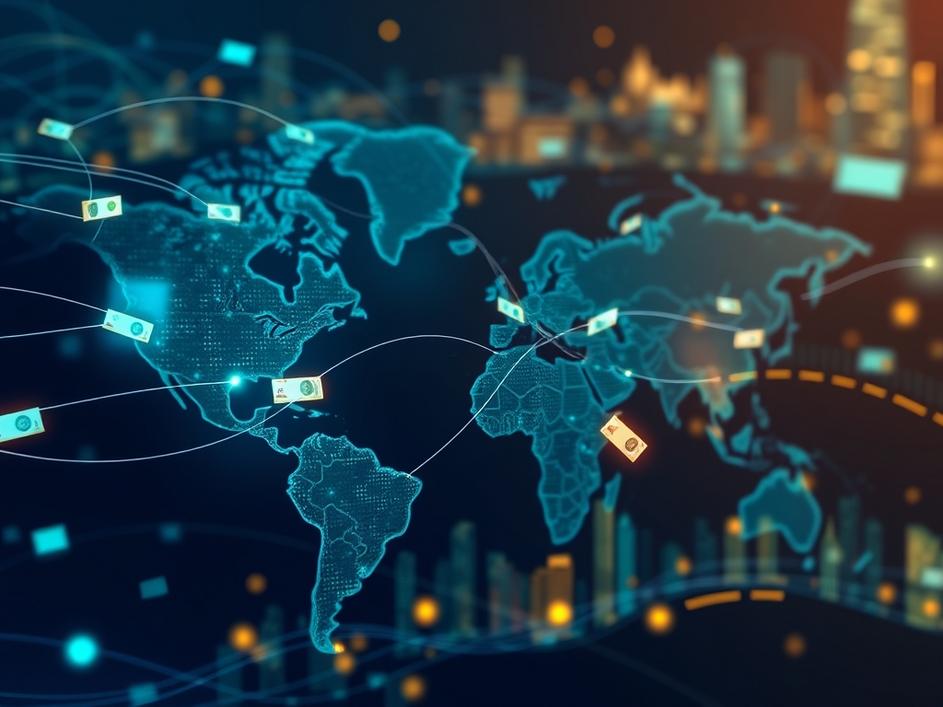


We are a digital agency helping businesses develop immersive, engaging, and user-focused web, app, and software solutions.
2310 Mira Vista Ave
Montrose, CA 91020
2500+ reviews based on client feedback

What's Included?
ToggleImagine a bustling hub where the brightest minds in finance and tech come together. That\’s Hong Kong FinTech Week, a huge event that happens every year. It’s a place where we get a peek into what’s next for money and how we handle it. In 2025, one of the biggest topics on everyone’s mind is how artificial intelligence, or AI, is changing the game for payments and trade between different countries. Getting money from one place to another, especially across borders, can be tricky. But AI is starting to make it much smoother. Someone who knows a lot about this is Tim Shen, the CEO of LianLian Global. He’s set to share his thoughts at the event, and it really highlights how important smart tech has become in our global economy. His talk isn\’t just about cool new gadgets; it\’s about making everyday business easier and faster for everyone involved, from big companies to small online shops trying to sell products worldwide. We’re moving towards a future where sending money internationally is as simple as sending a text message, and AI is a big reason why.
For a long time, moving money across countries felt like a slow, complicated dance. If you’ve ever tried to send money internationally or pay a supplier in another country, you probably know what I mean. Bank transfers could take days, sometimes even weeks. The fees could add up, eating into profits, especially for small businesses trying to stretch every dollar. And then there were all the hidden costs, like not-so-great exchange rates. Plus, there\’s always the worry about fraud or mistakes, which can be a real nightmare to sort out when dealing with different time zones and languages. These old systems weren\’t built for today\’s fast-paced world, where people expect things to happen instantly. They created headaches and roadblocks for businesses trying to grow beyond their own borders. Imagine an online store that wants to sell clothes worldwide. Every payment issue means lost sales or unhappy customers. Clearly, we needed a better way to handle these global money flows, something faster, cheaper, and much safer.
This is where AI swoops in to save the day. Think about it: AI is incredibly good at crunching huge amounts of information very quickly. For cross-border payments, this means a lot. First, it helps spot tricky patterns that could mean fraud. AI systems can look at transactions in real-time and flag anything suspicious much faster than a human ever could. This makes international payments way safer. Second, AI can automate a lot of the boring, repetitive tasks that used to slow things down. Things like checking documents or making sure everything follows the rules. This automation doesn\’t just speed things up; it also cuts down on costs. And because AI can analyze market data instantly, it can help businesses get better currency exchange rates, saving them money on every single transaction. So, instead of waiting days and paying high fees, AI helps money move almost instantly, with greater security and lower costs. It’s all about making the process smarter, letting businesses focus on what they do best, instead of getting bogged down in payment logistics.
But AI\’s impact isn\’t just limited to the payment itself. It\’s actually changing the whole picture of global trade. Think about all the moving parts involved when a product goes from one country to another. There are shipping companies, customs checks, different laws, and a lot of paperwork. AI can help here too. It can predict delays in supply chains, making logistics smoother. It can help businesses understand complex trade rules and make sure they\’re following them, avoiding costly mistakes or fines. For instance, AI can quickly sort through mountains of trade regulations to ensure a company\’s shipments meet all the requirements for a specific country. This takes a lot of stress out of international shipping. So, AI isn\’t just about the money transfer; it\’s about connecting all the dots in global commerce. It helps businesses manage their inventory, forecast demand, and even find new markets more effectively. This creates a much more connected and efficient world for buyers and sellers everywhere.
Companies like LianLian Global are at the forefront of this shift. They aren\’t just talking about AI; they are putting it into action to solve real problems for businesses. Their focus is on building platforms that make cross-border payments easy and reliable. This means offering services that help businesses handle different currencies, manage risks, and ensure payments arrive where they should, quickly and safely. Tim Shen\’s involvement at a major event like FinTech Week shows their commitment to pushing these innovations forward. They understand that for global trade to truly thrive, the underlying financial plumbing needs to be top-notch and powered by the best available technology. By providing these essential tools, they empower businesses to expand their reach, find new customers, and grow their operations without the traditional headaches of international finance. They are helping to build the bridges that connect global markets, making sure that money can flow freely and intelligently.
It makes perfect sense that Hong Kong FinTech Week is a key stage for these discussions. Hong Kong has always been a major player in global trade and finance, and it\’s quickly becoming a hot spot for new financial technologies. Events like this bring together key leaders, innovators, and thinkers to share ideas and push things forward. When someone like Tim Shen from LianLian Global speaks there, it sends a clear message: the future of cross-border trade is deeply tied to smart technology. This isn\’t just about big corporations; it’s about opening up the global marketplace for everyone. Small businesses can now compete on a level playing field with bigger ones, reaching customers all over the world without getting tangled in old-fashioned payment systems. The goal is to make doing business internationally as easy as doing it locally. As AI continues to get smarter, we can expect even more amazing changes, making global trade faster, fairer, and more accessible for everyone, truly connecting the world through commerce.
So, what does all this mean for us? It means that the way we send and receive money across borders is changing for the better, thanks to AI. The days of slow, expensive, and risky international payments are fading. In their place, we\’re seeing a new era of financial tools that are fast, secure, and smart. This isn\’t just a technical upgrade; it\’s a fundamental change that will help businesses of all sizes connect with the world more easily than ever before. It will open up new chances for growth, make trade more efficient, and ultimately bring people and economies closer. As we look ahead, the blend of AI with global payments and trade promises a future where money truly knows no borders, moving with an intelligence and speed that was once just a dream. It’s an exciting time to be part of the global economy, and AI is certainly driving a lot of that excitement.



Comments are closed